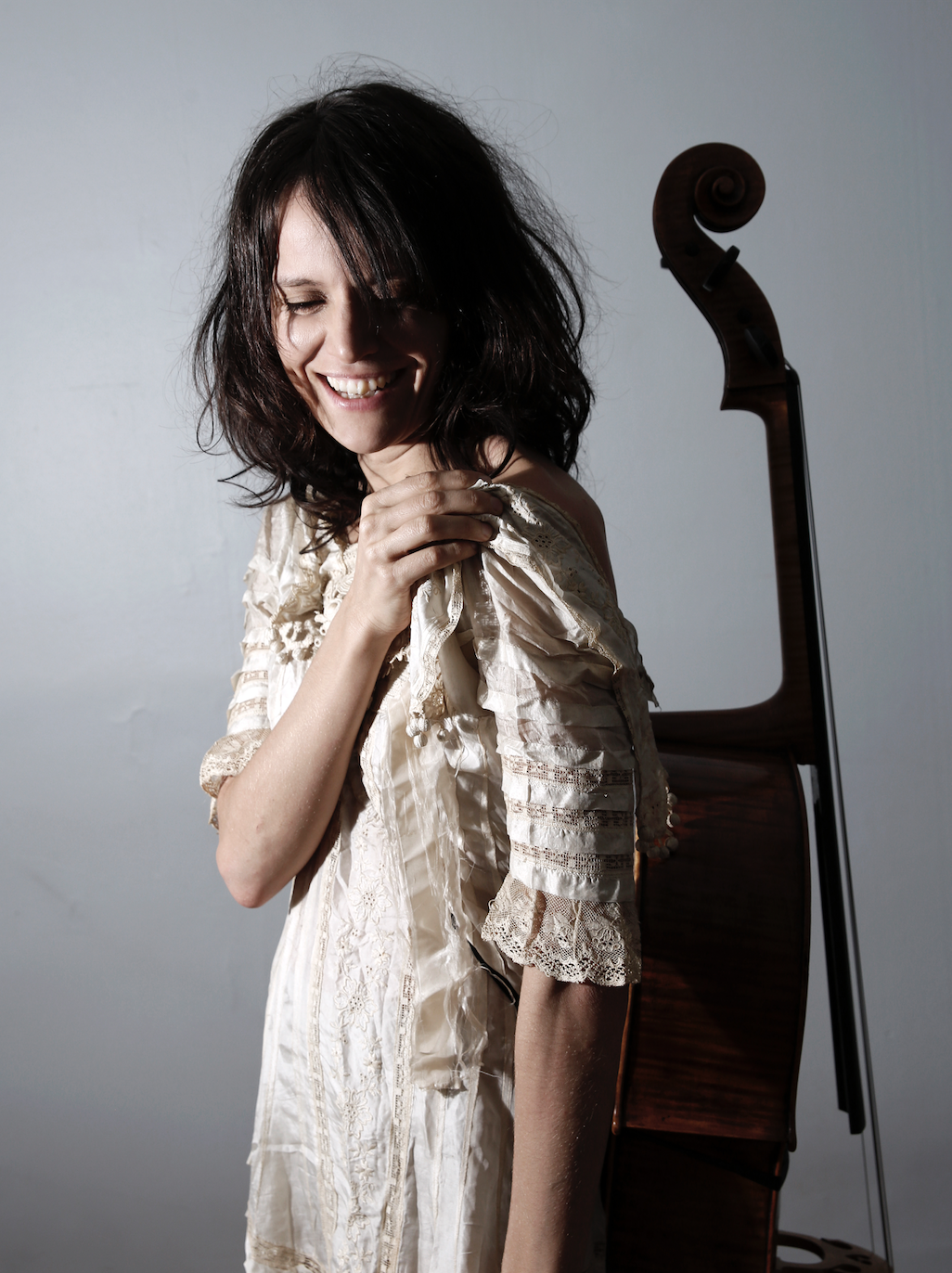Gyða Valtýsdóttir: “With the wrong teacher, classical education can create a self-destructive, perfectionistic ego”

Gyða Valtýsdóttir: “With the wrong teacher, classical education can create a self-destructive, perfectionistic ego”
“It’s a mystery why I chose the cello… I can’t sit on the floor with it, I can’t take it on a hike, I wasn’t able to dance around until I stubbornly learned to play with it hanging on me. But I’m glad it chose me.”
Reykjavík’s co-founded experimental pop ensemble múm in 1997 when she was just a teen. Along with Gyða’s twin sister Kristín Anna, the band comprised of Gunnar Örn Tynes and Örvar Þóreyjarson Smárason. She spent a decade with the group before setting out on her own in the mid-2000’s.
Gyða has since created music for films, installations, dance performances as well as working on a series of solo and collaborative projects including 2017’s ‘Epicycle’ which was released via Shahzad Ismaily’s figureight imprint.
On February 1 one of Dublin’s most forward-thinking collectives, Homebeat, invite Gyða to perform in the beautiful surroundings of Dublin’s Unitarian Church. She’ll be accompanied by Julian Sartorius and the aforementioned Shahzad Ismaily, a show Gyða says tends to be “a kind of holy, intense journey that threads together souls of dead geniuses and brings them into a new vibration again”.
How do you describe the music you create?
A density of energy, light and darkness, shaping waves of molecules that move hairs in a spiral cochlea which transform it to nerve impulses which can go into you and through you if you resonate with it.
Why did you choose the cello as your main instrument and what have you learned about music from studying it so deeply, completing a master’s degree as both a classical and free-improvisational cellist?
It’s a mystery why I chose the cello… I can’t sit on the floor with it, I can’t take it on a hike, I wasn’t able to dance around until I stubbornly learned to play with it hanging on me. But I’m glad it chose me. Learning to play an instrument is a privilege, especially if you find a great teacher. Then it is like tuning yourself, facing yourself and learning how to meet challenges and overcome limitations. It’s fascinating. With the wrong teacher, classical education can create a self-destructive, perfectionistic ego.
Going back to your 2017 record ‘Epicycle’, the music on which spans two thousand years and includes a version of ‘Seikilos Epitaph’, the oldest surviving complete musical composition, why did you decide to include ancient music on that album?
Well, music that falls into the “classical” genre is basically notated music, Harry Partch has a totally unique musical universe that I think has much more in common with Moondog, or weird-folk music than Schubert or Schumann. So ‘Epicycle’ is actually a collection of “written” music rather than classical. I was curious to find out, what would be the oldest written music and found ‘Seikilos Epitaph’.
How did you go about arranging your version of ‘Seikilos Epitaph’?
I met up with guitarist Hilmar Jensson and we improvised on the melody for two hours. I chose one of the improvisations and sang a little more on it through my computer speakers and then sent it to Michael York who added the duduk and bagpipes. So it was a collaboration between the three of us.
Why do you believe human beings have such a primal connection to music?
We are made up of vibrations and we like to be put into motions, we are constantly looking for resonance and music does that most easily.
Your latest album ‘Evolution’, which came out in October 2018, was released under the new moniker GYDA. Why the name change?
I have few different projects going on and a bunch of collaborations, so I thought that for my solo project I’ll use the simple version of my first name only.
It’s said that you recorded the album in two, 10-day sessions with a one day break in between. How did that process work for you?
It worked great for me. I’ve learned to connect to the seasons in me and adapt to the fact that I’m in constant motion. I wanted to make a record that was as close to me in time as possible, instead of recording old songs. I wanted to go into the studio without knowing what I would be doing and follow more instant inspirations. In such process you have to stay in a flow and feel which stream to take each time. There is no space for doubt. I might work differently on the next one, spend a long time trying things out and changing them. Who knows, as long as I’m having fun with it.
How has your work evolved on the new record?
It’s hard for me to say. I think evolution isn’t a linear thing, it’s constant spirals that go up or down depending on your perception.
Do you ever miss working in a band and how would you compare your time with múm to your solo career?
I love collaborations, but I do not miss being in a band. I’m too polyamorous for a band.
Gyða Valtýsdóttir performs in Dublin Unitarian Church on February 1.
